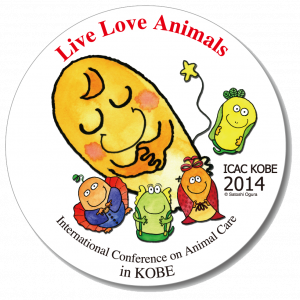Mr. Takashi UEMURA
Professor, Shijonawate Gakuen University

Three to 4 heads of “campus cat” live at the Stamford University, Bangladesh. They enjoy their life on the tree, at the ground, and in the office. Most students and staff are vaguely aware of the existence of them, but they don’t know their name. In the past few years, the number of those campus cats is not increased. Some control mechanism might be suppressed an increase in the number of them.
I was staying in the faculty house of the university at the time of Eid ul-Adha, 2013. The campus in Dhaka was closed on the holly vacation, and no people were there except several security guard.
I had to cook by myself in the kitchen. There, the cats came close to my feet, and cried, MEOU- I found the empty can for cats on the floor of the kitchen, and shared a little of my food to them. The campus cats were only my friends at the campus during the Eid holidays, and they reacted to my call, too. Warm “NOTS” was formed between us.
They may ignore me on my next visit, when the campus is full of students and staffs. It’s OK. It’s natural.
Long life for them. |
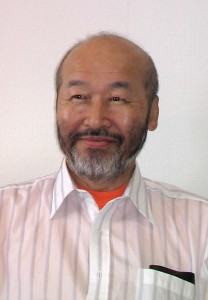 |
|
Mr. Kazumi SASAI
Professor, School of Veterinary Scicences Osaka Prefecture University

ICAC Kobe, established in 2009, is hosting its third international conference. For the purpose of human and an animal wealthily together, the importance of the meeting increased as a meeting of the one and only that the people concerned gather in a hall.
Recently, the role of veterinarians has progressively gained importance to address issues such as the global food crisis, environmental problems, scarcity of safe and good quality livestock, difficulties in acquiring and utilizing biological resources, inability to provide good healthcare for coexisting animals, new re-emerging infections, and lack of food hygiene. Furthermore, providing disaster relief for animals has become a major issue for veterinarians. For three years after the unprecedented earthquake disaster, humans and animals suffered due to lack of detailed planning before they were able to regain normal living conditions.
In these situations, the harmonious coexistence of humans and animals undergoes an appalling change, placing a great responsibility on the education of veterinarians. In March 2013, the Ministry of Education, Culture, Sports, Science and Technology (MEXT) proposed “Progress of Educational Reform and Educational Policy for Veterinarians.” To plan the improvement and enhancement of veterinary education that supports solving problems (new social needs, training world-class veterinarians, and uneven distribution of the areas of veterinary activities), MEXT promotes the following: (1) development of a model core curriculum common to all veterinary schools, (2) introduction of third-party evaluations based on standards in the field, (3) practice of participatory bedside teaching for the improvement of clinics, (4) use of uniform exams to instill public confidence in the system, (5) initial evaluation of students who practice, and (6) ensuring sufficient number of teachers by cooperating with universities to establish joint faculties and departments.
In response to these situations, a prospective and fruitful discussion about Japanese veterinary education will be held by various specialists and general participants. The goal of the discussion in this meeting is to bring about a society that houses humans and animals together, naturally. |
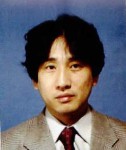 |
|
Ms. Hiroko SHIBANAI
Advisor, Japanese Animal Hospital Association (JAHA), Director, Akasaka Animal Hospita

We Humans – Responsible for Every Life on our Earth
The world population today now exceeds 7 billion people and humanity continues to pollute the planet, devour its limited resources, and accelerate global warming. We are the cause of the unexpected climate change, and all the serious damage and loss of life it has brought. Can we now do anything to counter all this change? Such are the issues and dangers that people are all now aware of and, indeed, fear. However, it seems that the speed of the problem is increasing so rapidly that people as individuals, and as entire nations, have few counter measures to offer.
Looking back, humans have been in close contact with a variety of mother nature’s other animals since ancient times. We have received many blessings from Nature but also been exposed to its menace, all of which have shaped our dispositions as human beings. However, in more modern human societies and more advanced countries with their industrialization and urbanization, we are now separated from nature. We are surrounded by concrete, nuclear families, older people and fewer children. In Japan especially, the aging of the population is increasing rapidly while the birth rate is falling. The social bonds between people are becoming frayed and our children, during their precious formative years, are no longer growing up with nature around them or socializing with animals. In fact, many more families are breaking up even before the children enter elementary school. The problem is already having a negative effect on the next generation with more reported cases of child abuse, children abandoned by parents, childhood bullying, depression and suicide, as well as criminal acts born of sudden rage. The environment in which children, who represent our future, are growing up now has many serious problems. What we should do, and can do now, is to nurture their courage and their ability to judge towards greater responsibility for this planet and life it supports. The power of companion animals employed in Animal Assisted Education (AAE) is now spreading and is carried out as one way to move towards this goal. |
 |
|
Mr. Kimihiro TAMAI
Chairperson, Wakayama Veterinary Medical Association

The International Conference on Animal Care in Kobe was held for the first time in 2009 by the Knots organization (at the time an NPO). It was an event that opened our eyes, shaped our thinking and gave us a firm belief in our actions.
The second conference was held in 2012 in the wake of the unprecedented 2011 earthquake and tsunami disaster. The Japan Veterinary Medical Association (JVMA), and Knots (now a Public Interest Incorporated Association) were co-organizers and the event allowed an even wider variety of scientific ideas to be exchanged. A great many professionals from a broad range of specialty fields were able to share their expertise from multiple viewpoints and compare their research and fieldwork findings and implications. The debates, rich in argument both for and against, allowed us to deepen our own thinking and observations. The seriousness of our responsibility was reconfirmed as well as the urgent need to consider ‘what we can do next’.
An interaction between both the general public and governmental authorities has since been emerging on a more scientific basis. Within its emergency-response procedures, Wakayama Prefecture is planning how to rescue domesticated and dependent animals, not only as an animal care issue but as part of its victim support initiatives.
For this next 3rd International Conference of Animal Care in Kobe, 2014, the Japan Medical Association (JMA) has joined as an official organizing partner. As such, the theme ‘For the Future of Man and Other Animals’, can be faithfully and genuinely represented within the conference. Indeed, bringing together these human and animal specialty fields and organizations is not only highly significant, it is truly epoch making. This is ‘One World, One Health’ in its purest meaning with the health of man and other animals united for the good of our planet within one conference.
Our task has been one of constantly restarting, the goals ever out of sight, because there are a great many problems that cannot be solved by focusing on humans alone, or animals only. But now, we have people from various viewpoints all at the same table and starting from the same position. Furthermore, the animals are also involved. So with such high potential for quality, scope and time efficiencies, I am looking forward to a great number of synergies arising from this conference. |
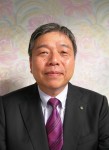 |
|
Dr. Chizuko YAMAGUCHI
Veterinary Inspector, Japan Animal Welfare Society (JAWS)

This ICAC KOBE conference is the third in the series. For the previous conference, two PIIA organizations served as Organizers, namely PIIA Japan Veterinary Medical Association and PIIA Knots. But this year, in keeping with the ‘One World, One Health’ concept, the JVMA and Knots have been joined by an additional organizer, the PIIA Japan Medical Association. This makes the conference theme ‘For the Future of People and Other Animals’ even more appropriate. This conference already covers a wide range of fields but ‘Life Education’ is gaining more and more attention. This is because in modern times we have been witnessing an impoverishment in the ability of people to be considerate of others as well as a devaluation in respect for the importance of life. ‘Life Education’, with its appreciation for the lives and emotions of animals, has therefore been growing. As a result officials from Japan’s Ministry of Education, Culture, Sports, Science and Technology, as well as various Boards of Education and others involved in the wider educational field are focusing on this conference. Furthermore, a number of universities and colleges with animal related courses have kindly offered their cooperation, all recognizing the importance of Life Education to the futures of our young people.
From the very beginning of human history, we have put animals to use in various ways. They have always provided us with food and clothing. We have used them for work, for medical research and education, and for entertainment and gambling. Furthermore, the number of animals sharing our lives as companions has also increased. However, the attitude that it is acceptable to put animals to use as much as possible for human benefit will ultimately destroy not only their futures but also our own. It will not be sustainable for planet Earth if we continue our exclusively human-oriented way of life. It is therefore time to gather all our wisdom, time to protect animals and promote their welfare, and to take action for the future so that both humans and animals live more healthy and happy lives. The spiritual and physical health of animals impacts our own lives. So I sincerely hope that people from many different fields will participate in this conference and that it will help launch us towards an improved future. |
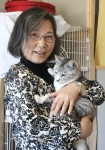 |
|
Ms. Keiko YAMAZAKI
Founder, Companion Animal Study Group ‘Go’

The Kobe conference, ICAC, has grown in both size and content over the years. Numerous discussions on various areas of interest pertaining to the human animal connection have been planned for this year’s conference in the hopes that it will once again be a meaningful experience for all participants. The revised animal welfare law has been enforced since September, 2013 and the animal scene in Japan has continued to improve. At the same time there are still many issues that remain unresolved in this area. It will take some time yet to create an environment where the well being of both people and animals can be secured. An active exchange of information at conferences such as ICAC is becoming even more important in our current world. As the words “One World, One Health” implies that the well being of humans and animals are interconnected. I am hoping that this conference serves as an opportunity for all of you to reawaken to this thought. |
 |

